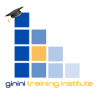Meetings between homeschoolers & government
Meeting with Gauteng Department of Education (GDE) on 15 November 2013 at Doxa Deo Silver Lakes
The meeting was organised by an organisation called “Tuisonderrig”. This organisation believes strongly that homeschool parents should register with the Department of Education and use the National Curriculum, and they have organised this meeting in order to inform parents on the registration process.
Two following two speakers from the GDE were invited to speak to parents:
- Ms Carol Motshwane, Deputy Chief Education Specialist (DCES) – Coordinator : Home Education
- Mr Mazengelonke Mdingi - Director: Independent Schools
The meeting was chaired by dr. Breytenbach of Tuisonderrig. In his introduction he made it clear that the meeting will only deal with the administrative aspects of registration for home education, and not with questions on whether the parents should register or not, since the officials attending the meeting are merely implementing the law and are not responsible for writing the law.
Talk by Carol Motswane
The first speaker was. Ms Carol Motswane (CM). She is the Deputy Chief Education Specialist (DCES) in directorate for independent schools and she manages home education. Motswane mentioned that she likes to stand while she is doing the presentation, because she is a teacher. She refers to home education as "our" sector, because she wants to see home education growing is the correct way.
Motswane states that home education is growing for various reasons such as violence at schools and that parents apply for different reasons such as remedial reasons. Other parents choose it because they travel a lot. Many homeschooling parents are from other countries. Some parents choose it for religious en moral reasons, severe disabilities or learners with ADHD.
She defines home education as the education that takes place between learner and parent at residential home. It is not education at home schools, cottage schools, etc. these are not legal. On this point, me. Motswane is partially correct. Home education must indeed be at the child’s own home, but she is not correct to state that it may only be the parents that provide the home education. The law does not specify who may be doing the home education.
The registration for home education consists of three processes:
- Pre-registration
- Registration
- Post registration.
During the Pre-registration phase, parents must send the application form and supporting documents to the Gauteng Department of Education (GDE). The submission of documents must be done before September in the year before parents plan to start with home education. The GDE will send and acknowledgement to parents and capture all the information. The GDE will also do site visits to verify all the information that was provided and discuss the motivation for home education with the parents. They will also inspect the learning space and proposed outline of the learning plan. According to the policy children should receive 3 hours teaching time per day and stick to the time tables of the schools.
If parents choose home education due to a problem at a school, the GDE will attempt to resolve the problem at the school. The GDE prefers to resolve the issues at schools if parents are not capable of teaching their children. Sometimes parent state that it is their constitutional right to choose home education.
After everything has been verified, the Registration phase starts. The application will be compiled and submitted to the Head of the Department of Education (HDE). All the managers up to the HDE will check that the motivation is in the interest of the child.
Once the application has been approved or declined, parents will receive a letter. This letter will be posted only once, because the GDE has a small budget. Parents may not start with home education before they have received the letter stating that their application has been approved. Parents may not register for home education if they are already busy with home education. If the application has been declined, parents can appeal to the decision.
During the Post Registration phase, their registration must be renewed regularly. Parents will receive visits from officials of the GDE 2 times a year. These officials will go out to mentor and support the parents. It is not the intention to do an inspection during these visits. Parents must also send assessment reports every year to the GDE. These assessments will be moderated by the department. If parents decide to send their children back to school, they must deregister their child for home education.
Motswane then also mentioned stakeholders and partners in home education. There are internal stakeholders and external stake holders.
Internal stakeholders include the following:
- The Assessment Directorate assists with assesment
- Institutions and Special Schools assist with learners with special needs.
- Safety and security is mainly used to inspect illegal schools.
- Legal Services consult on legal issues.
- Curriculum directorate to assist with curriculum
External stakeholders include the following:
- Curriculum suppliers must be accredited with Umalusi, to ensure that their curriculum meets the assessment standards of CAPS.
- Social Services Department.
Questions and Answers
Q : Must the annual progress reports be in a certain format?
A : There is a National Assessment document and the protocol that defines the format of a reports. This can be downloaded from the website of the department of education.
Q : It seems that the department of Ms. Motswane has a very limited budget. However, according to the census, homeschoolers are saving the department in the order of R320 million. Why does Home Education Directorate not receive part of this money?
A : This question was answered Mr. Mdingi. The money that is saved by homeschoolers does not end up as cash in the account of the department. The treasury bases it’s budget on the number of learners in public schools and subsidized private schools.
Q : Why are representatives of homeschooling parents not part of stakeholders?
A : Mr. Mdingi continued to answer this question as well. He mentions private education and home education has been largely ignored by the department of education. Currently the GDE is the only province that has a dedicated directorate for independent schools and home education. They have formed a representative body of stakeholders for independent schools. Mr. Mdingi has only started in 2012 and they are now only starting.
Mr. Mdingi continued to explain why it is important why parents should register. When parents move to another country, they need a report confirming that the child has received home education. If such report is from the Department, it carries more weight than a report by parents.
Mr. Mdingi then explained that the GDE hardly declines application for home education, except in cases where parents are busy with a divorce.
When parents buy a curriculum they should ensure that it is in the best interest of their child. If parents use international curriculums such as Cambridge, they must keep in mind that Cambridge must be accredited by Umalusi.
Q : Many parents do not register because they fear that their application will be declined. Is there a list that parents can check make sure that their application will be approved?
A : There is not really such a list. There are only a few broad guidelines in the National Policy. Curriculum providers should assist parents with this free of charge.
Q : How long does the registration process take?
A : There are 10 people in directorate. They have limited capacity to do home visits. They cannot guarantee that the registration process will be completed in a certain time period.
Q : What will the attitude of the department be towards homeschoolers?
A : They want people to register so that they assist them. It is not the intention of the department to prosecute parents. The department wants to engage with the stakeholders.
Legal & Research
Centres
Homeschool ABC
Support
Curriculums
Sunrise readers: From pre-reading ...
Parents and educators - these popular reading books with an ...
Ginini Training Institute
Ginini Academy is an EdTech home education content provider ...
Cambridge & International ...
As of 1 January 2025, Macmillan Education is the sole agent ...
Has no content to show!
































